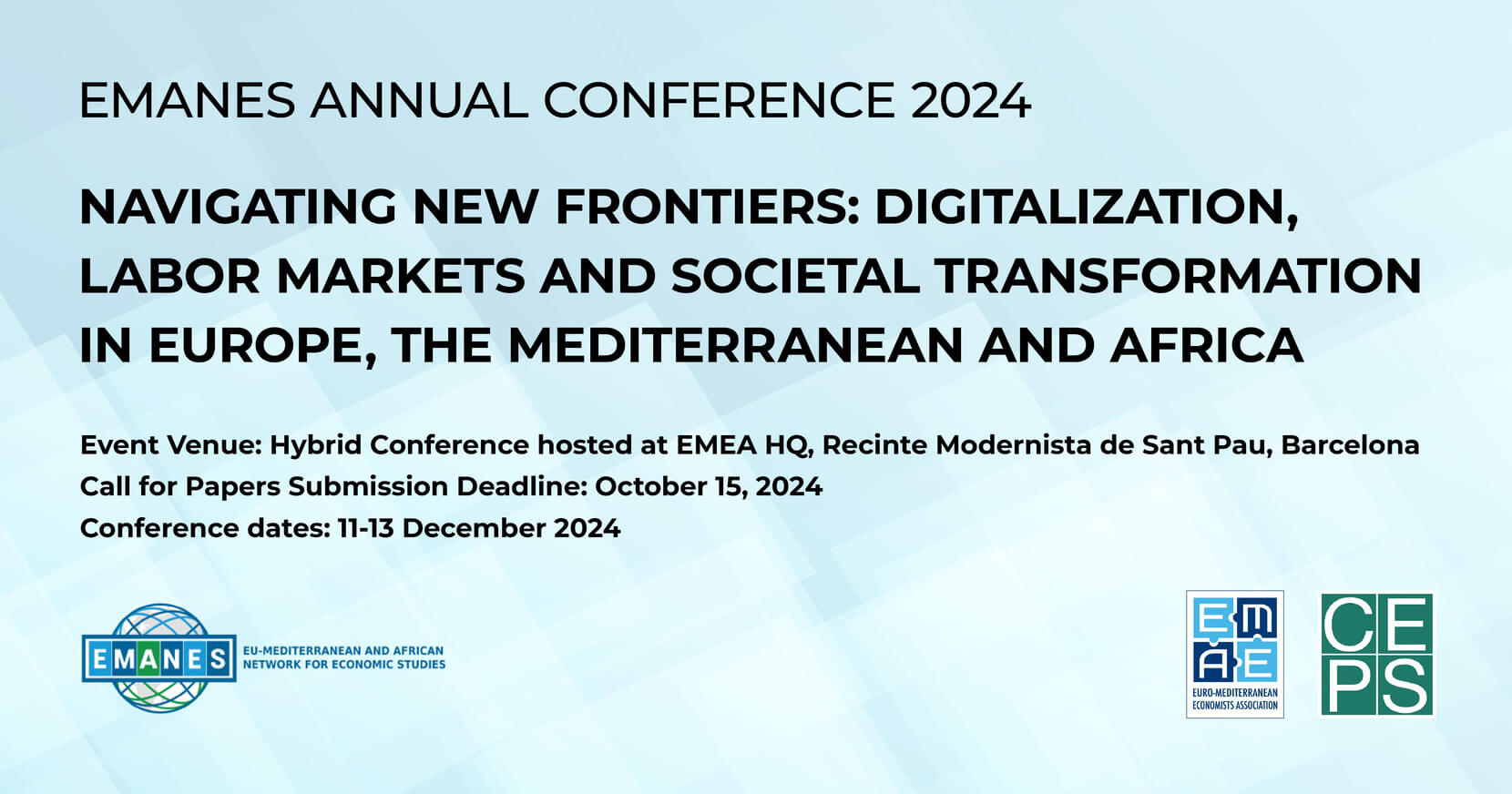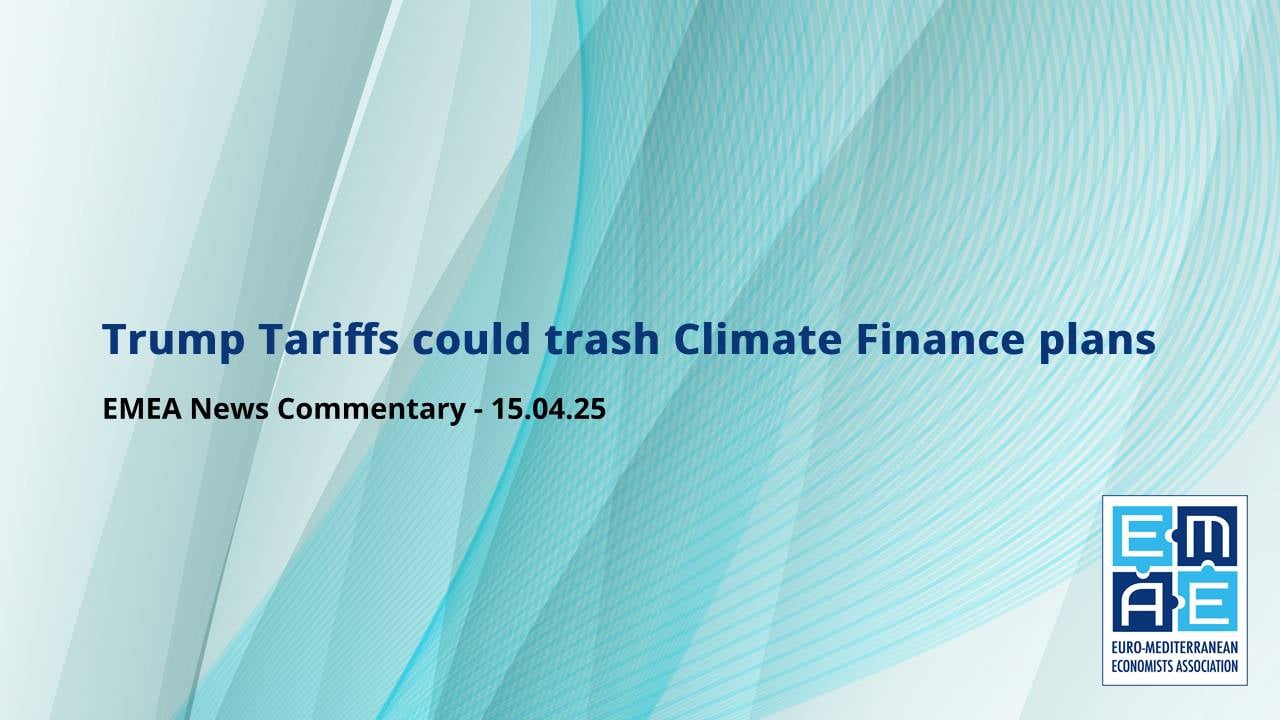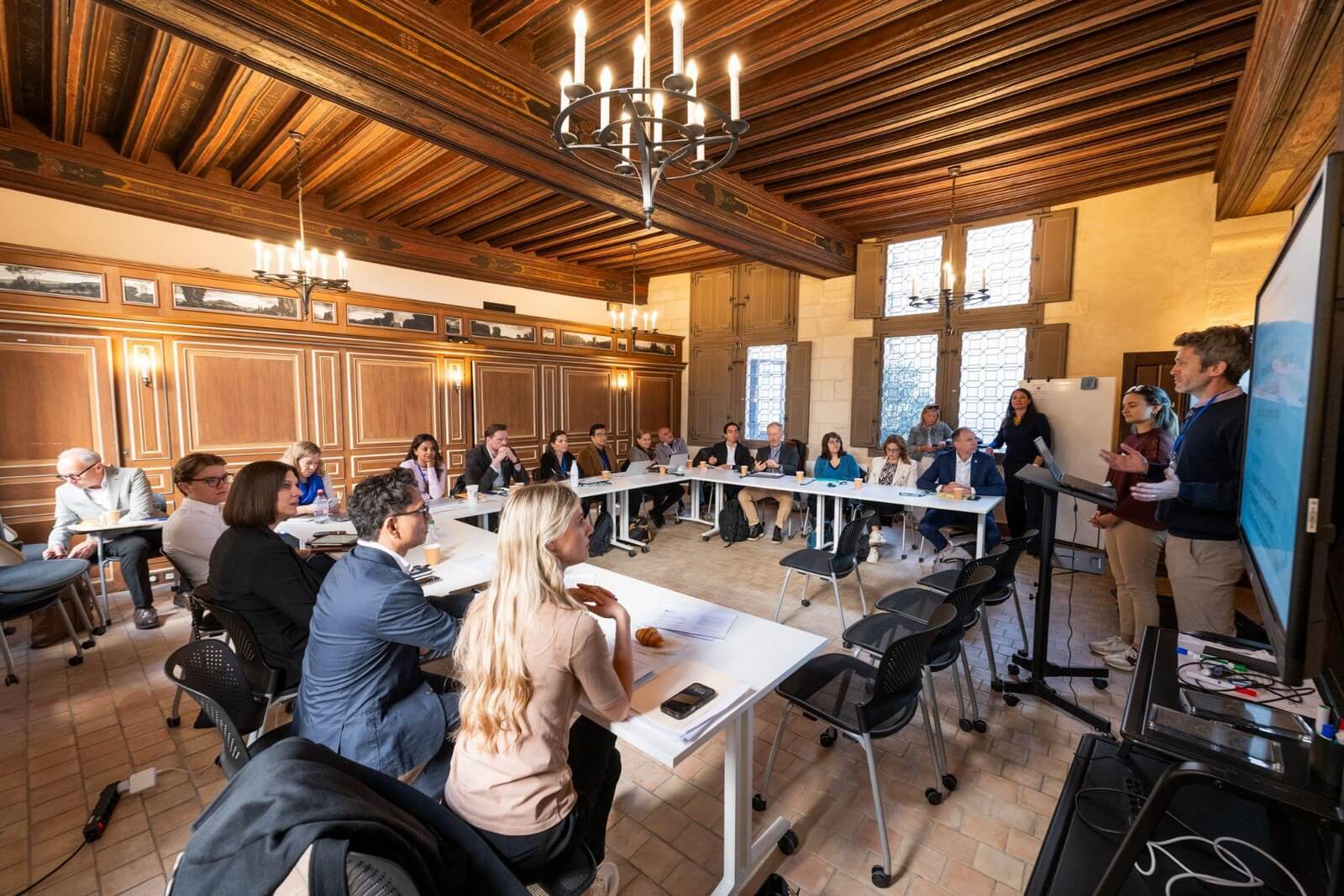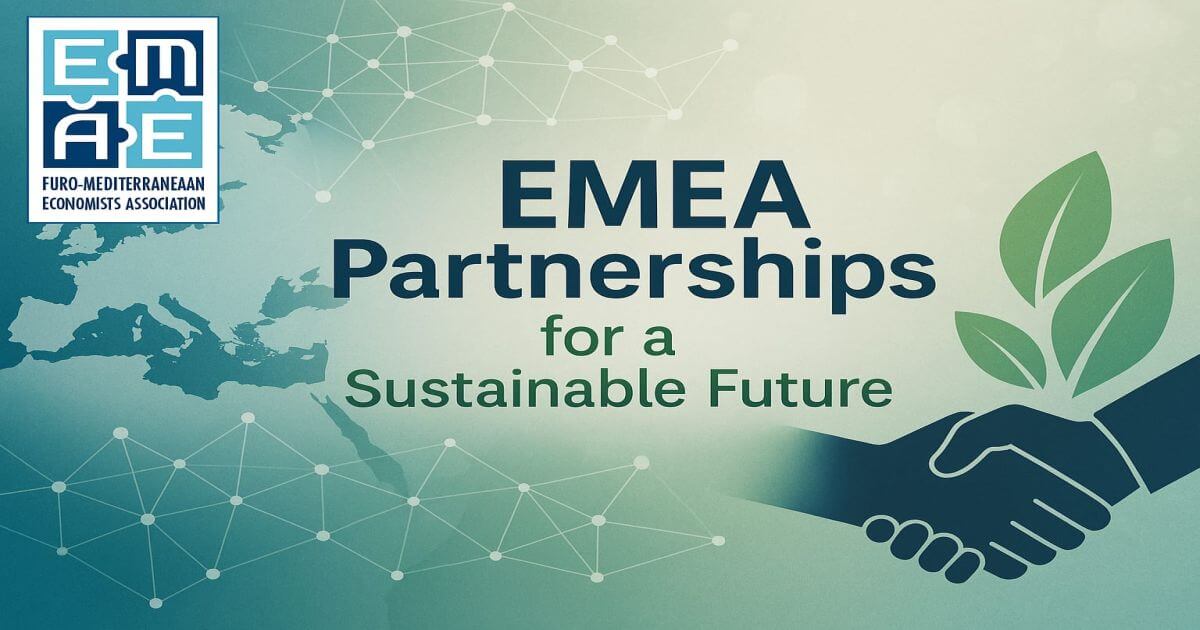BACKGROUND
The EMANES Annual Conference provides a forum for researchers, practitioners and policy makers to discuss current issues related to socio-economic development and regional integration in Europe, the Mediterranean and Africa. While the specific theme of the Annual Conference varies from year to year, the overall objective of this event is to stimulate discussion of high quality and policy relevant cutting-edge research that informs our understanding of how various socio-economic issues can affect the overall economy and the societies at the national and regional levels and the extent of interconnectedness and complementarities between the economies that lead to peaceful, prosperous, healthy and vibrant societies.
EMANES Annual Conference 2023 website: https://conference2024.emnes.org/
AIMS AND TOPICS
The EMANES Annual Conference 2024 offers leading and young academics, practitioners and policymakers the opportunity to discuss innovative research on a range of topics related to digitalization and economic transformation.
In the wake of technological advancements, Europe, the Mediterranean, and Africa are experiencing a pivotal transformation within their labor markets, influenced by the burgeoning roles of artificial intelligence (AI) and digitalization. This era of change is characterized not only by its challenges but also by the extensive opportunities it presents for societal and economic evolution.
The EMANES 2024 call for papers aims to explore the comprehensive impacts of digital changes and innovation on areas including skill enhancement, productivity, job creation, migration, gender equity, healthcare, digital trade, financial inclusion, private sector development, entrepreneurship, and overall societal well-being. We seek to illuminate the potential of digital technologies in fostering inclusivity, prosperity, sustainable growth and wellbeing, underscoring the importance of regional partnerships in navigating the complexities of this digital revolution.
As AI and digital tools begin to permeate various economic sectors, they promise to fundamentally alter the nature of work, stimulate economic development, and create novel employment opportunities. However, these advancements also raise critical concerns regarding job security, ethical considerations in technology use, and the potential exacerbation of the digital divide. Against this backdrop, the development of digital skills is paramount, ensuring the workforce is prepared for the opportunities and challenges of a digital economy. The impact of digitalization extends to migration, offering new insights into how technology can aid in the integration and mobility of migrant populations. Additionally, digital financial inclusion and the stimulation of private sector growth through digitalization are key to economic empowerment and the promotion of entrepreneurship across diverse communities. Addressing gender disparities and focusing on the well-being of individuals are foundational in crafting resilient and equitable societies. This initiative calls for contributions that critically assess and envision the future of labor, trade, economic development, and societal welfare through the transformative lens of digital technology.
The call for papers invites submissions of high-quality unpublished manuscripts on topics related to the digitalization in the EU-Mediterranean Africa with the focus on achieving a just transition towards a transparent, resilient, green, inclusive sustainable and regenerative socio-economic development, but not limited to:
- Digitalization’s Impact on Labor: Insight into how AI and digital innovations are redefining the employment landscape, highlighting both the potential risks and benefits.
- Skills Development for the Digital Age: Examination of strategies and policies needed to upskill and reskill the workforce, aligning with the evolving requirements of a digital economy.
- Migration in the Digital Era: Analysis of how digital technologies influence migration trends and the integration of migrants into new labor markets.
- Well-Being in Digital Workspaces: Consideration of the effects of digital employment environments on mental and physical health, proposing measures to foster a healthy work-life balance.
- Digital Trade: Investigating the transformative effect of digital platforms and tools on international trade, market access and the global economy, while exploring the role of regional value chains.
- Digital Financial Inclusion: Exploration of the ways in which digital financial services are making economic participation more accessible, enhancing entrepreneurship and supporting small business growth.
- Gender Equity in the Age of Digitalization: Investigation of how digital advancements can bridge the gender gap within the labor market and ensure equal opportunities for all.
- Digitalization and Private Sector Development: Discussion on how digital technologies can spur private sector growth, emphasizing the role of entrepreneurship and innovation in driving economic advancement.
- Fostering Regional Collaborations: Proposals for regional partnerships that utilize digital innovation to encourage inclusive growth and sustainable economic development.
- Demographic changes and the adoption of robot and automation technologies
EMEA-EMANES research published during the last years precisely explores the effectiveness EU-Mediterranean- Africa Partnership with a focus on regional integration, interconnectedness, and convergence. It also delves into how regional integration could become a pillar for sustainable and regenerative green economies that emphasizes the importance of complementarities to face global challenges and uncertain transitions in collaboration with private actors, through private public partnerships and south south collaborations.
Following that, the EMEA-EMANES research intends to identify novel models and policy options and actions in the fields of trade, investment, energy, financing, R&D an innovation, and human development that allow to effectively alleviate the increasing socio-economic pressure across the whole region.
Papers on other EMANES research areas are encouraged.
The Euro-Mediterranean and African Network of Economic Studies (EMANES) new socio-economic vision stems from the quest for long-term economic policy solutions aiming at more transparent, responsible, inclusive, sustainable, equitable, employment driven and regenerative socio-economic development in the region. EMANES research covers the following areas:
- The role of institutions and labour markets;
- The role of the private sector and Micro, Small and Medium-Sized Enterprises in achieving an inclusive development model;
- Social business and social inclusion;
- Health policy;
- Creative and cultural economy;
- Sustainable development and low carbon economy;
- Entrepreneurship and innovation;
- Finance, employment and inclusive growth;
- Human capital, skill mismatches, job creation and migration;
- Macroeconomic policies, productivity and job creation;
- Economic resilience and sustainability;
- Economics of the EU-Mediterranean and EU-African partnership;
- Regional integration and job creation;
- Scenario analysis and foresight;
IMPORTANT DATES
Deadline for Submission: October 15, 2024
Notification of Acceptance: November 6, 2024
Registration Deadline accepted author: November 15, 2024
Conference dates: December 11-12-13th, 2024
Please visit the EMANES Annual Conference website and submit your full manuscript in PDF format via email to: emanes.conference@euromed-economists.org
CONFERENCE SPECIAL ISSUE: ECONOMIC NOTES
In conjunction with the EMANES Annual Conference, selected papers will be considered for a special issue of the Economic Notes Journal
PRIZE FOR THE BEST PAPER
There will be two Best Paper Awards of EUR 2,000 each sponsored by the Euro-Mediterranean Economists Association
Co-chairs:
- Prof. Rym Ayadi, EMEA
- Dr. Cinzia Alcidi, CEPS
- Prof. Giovanni Ferri, LUMSA University
- Prof. George Bravo, NOVA IMS
- Prof. Najat El Mekkaoui, University Paris Dauphine
- Prof. Raul Ramos, University of Barcelona
Organising Committee:
- Sandra Challita, EMEA
- George Christopoulos, EMEA
- Riccardo De Angeli, EMEA
- Ivan Hajdukovic, EMEA
- Kirsty Fairhurst, EMEA
- Yeganeh Forouheshfar, EMEA
- Mais Shaaban, EMEA
- Doriana Cucinelli, EMEA
- Anna Santamaria, EMEA
ORGANISERS
This year’s EMANES Annual Conference will be hosted hybrid in EMEA HQs in Recinte Modernista de Sant Pau, Barcelona by the Euro-Mediterranean Economists Association (EMEA) in collaboration with the Centre for European Policy Studies (CEPS).

For more information please visit:
EMNES 2024 Annual Conference: https://conference2024.emnes.org/
EMNES Previous Conferences: https://conference2024.emnes.org/previous-conferences/
Registration Fees: The conference is free of charge







